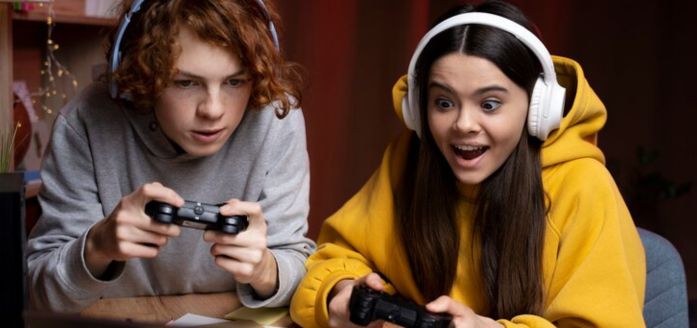
Unlocking Social Skills: The Benefits of Gaming for Friendship Development
In today's digital age, gaming has evolved far beyond mere entertainment. Beyond the immersive graphics and captivating narratives lies a realm where friendships are forged, and social skills are honed. Contrary to common misconceptions, gaming offers a plethora of benefits for social development and fostering meaningful friendships. Let's delve into how gaming serves as a catalyst for enhancing social skills and nurturing lasting connections.
Firstly, gaming provides a platform for individuals to engage in collaborative experiences. Whether embarking on quests in a massively multiplayer online game (MMO) or strategizing in team-based shooters, players are required to communicate and coordinate with one another effectively. Through these interactions, gamers learn the importance of teamwork, leadership, and compromise. They develop essential communication skills as they articulate strategies, convey objectives, and offer support to their peers. Such collaborative endeavors foster a sense of camaraderie, laying the foundation for enduring friendships both in-game and beyond.
Moreover, gaming transcends geographical barriers, enabling individuals to connect with like-minded individuals from diverse backgrounds. Online gaming communities serve as melting pots where people with shared interests converge, irrespective of their location or cultural differences. Through these interactions, players gain exposure to varied perspectives, fostering empathy and cultural awareness. They learn to navigate social dynamics, resolve conflicts, and build rapport with individuals from different walks of life. In essence, gaming cultivates a global community bound by a common passion for play and mutual respect.
Furthermore, gaming offers a safe space for individuals to express themselves authentically without fear of judgment. In virtual worlds, players have the freedom to experiment with different personas and explore aspects of their identity. This anonymity emboldens shy or introverted individuals to break out of their shells and engage more confidently with others. Whether through voice chat or text communication, gamers can forge meaningful connections based on shared interests and mutual respect, irrespective of their real-world inhibitions.
Additionally, gaming fosters the development of problem-solving skills and adaptability, both crucial components of effective social interaction. In navigating complex game mechanics and overcoming obstacles, players learn to think critically, analyze situations, and devise creative solutions. These cognitive skills are transferable to real-life scenarios, empowering individuals to tackle challenges with confidence and resilience. Moreover, the dynamic nature of gaming environments necessitates adaptability, as players must quickly adjust to changing circumstances and collaborate with others to achieve common goals. Such adaptability is invaluable in navigating the complexities of social interactions and building rapport with diverse personalities.
In conclusion, gaming is far more than a solitary pastime; it is a powerful tool for fostering social skills and cultivating meaningful friendships. Through collaborative gameplay, online communities, and the freedom of expression afforded by virtual worlds, gamers develop essential communication, empathy, and problem-solving abilities. These skills not only enrich their gaming experiences but also have a transformative impact on their real-world interactions. As we continue to embrace the digital age, let us recognize the profound potential of gaming as a catalyst for social growth and friendship development.